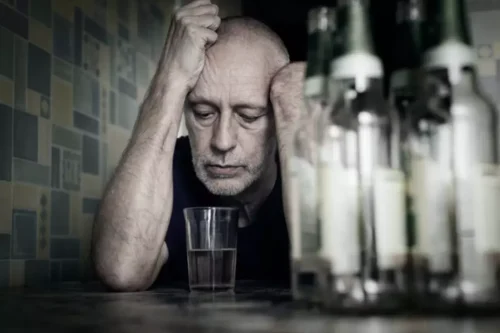
When a woman drinks, the alcohol in her bloodstream typically reaches a higher level than a man’s even if both are drinking the same amount. This is because women’s bodies generally have less water than men’s bodies. Because alcohol mixes with body water, a given amount of alcohol is more concentrated in a woman’s body than in a man’s. As a result, women are more susceptible to alcohol-related damage to organs such as the liver. Prescription antihistamines are often chosen by doctors because they are considered safer options than some other possible prescription medication.
Healthy Choices To Consider

Most important, the list does not include all the ingredients in every medication. Some medicines that you might never have suspected can react with alcohol, including many medications which can be purchased “over-the-counter”—that is, without a prescription. Even some herbal remedies can have harmful effects when combined with alcohol. These effects are more pronounced when alcohol is mixed with first-generation antihistamines, like Benadryl. Additionally, both alcohol and antihistamines can cause dehydration, and when combined, this effect may be exacerbated. Understanding the specific interactions between different types of antihistamines and alcohol can help you stay safe while taking these medications.
What Are Antihistamines?
Prescription antihistamines may be prescribed for allergic reactions, but may also be used by your doctor for off-label reasons. Antihistamines may address or be part of the treatment regimen for certain digestive issues, insomnia, or anxiety. It works by preventing histamine from binding to histamine receptors in your body.
Angioedema
However, even medications that don’t require a prescription can be unsafe when mixed with alcohol. If you have diabetes, drinking alcohol can affect your blood sugar levels. The effects of mixing alcohol with medication also depend on certain individual factors. For example, women can experience the effects of mixing alcohol and medications more severely than men because of differences https://ecosoberhouse.com/ in metabolism. In some cases, mixing alcohol with medications can lead to an overdose or alcohol poisoning—both of which are potentially life-threatening medical emergencies. Additionally, if you have an underlying health condition like heart disease or high blood pressure (hypertension), mixing alcohol with your medications can put you at risk for complications.

- While our palate may yearn for the alluring taste of alcohol, combining it with widely used allergy medications may stir up a risky cocktail.
- As H1 antihistamines pass into your brain, they can cause drowsiness, enhanced by alcohol, which operates in the same way.
- HAE can be detected from blood testing and usually presents in adolescence rather than in infancy.
- This document has been developed by ASCIA, the peak professional body of clinical immunology/allergy specialists in Australia and New Zealand.
The dangers of mixing alcohol with prescription drugs are well known. When you pick your prescription up at the pharmacy, chances are the label or package insert will come with a warning if it is not safe to consume alcohol while you are taking the medication. Using alcohol with medications used to treat heartburn, both prescription and over-the-counter, can cause tachycardia (rapid heartbeat) and sudden changes in blood pressure.
Risks of Antihistamine and Alcohol
Antihistamines help manage symptoms of allergic reactions, like seasonal allergies. They are very common medications, with many people who experience seasonal allergies in the United States receiving prescriptions for antihistamines. Antihistamines work by blocking histamine release what is alcoholism from the body when an allergen is encountered. Antihistamines can be classified as first generation (sedating) antihistamines and second generation (non-sedating) antihistamines.


First-generation antihistamines, such as Benadryl, are central nervous system (CNS) depressants, which is why they have side effects such as drowsiness, dizziness, and loss of coordination. Alcohol is also a central nervous system depressant with side effects of drowsiness, dizziness, and loss of coordination. Combining these two drugs can exacerbate their side effects and result in life-threatening symptoms. If you have been suffering from seasonal allergies when the time comes once again, you would be stuck with the works – a runny nose, itchy eyes, and tons of sneezing. 13-14% of children and adults in the U.S. experience nasal allergy symptoms accordingly. It is also noted that 30% of Americans suffer from eye irritation due to pollen.
What are antihistamines? How do they treat allergy symptoms?
With numerous antihistamines on the market, finding the right one for you might take some time. Some antihistamines work for four to six hours, while others are designed to be effective for 12 to 24 hours, says the U.S. Some antihistamines are formulated to contain a decongestant that should put a mixing alcohol and drugs causes an effect called halt to your runny nose. Combining alcohol with acetaminophen, which is contained in many cold/flu meds to deal with inflammation and fever, may lead to liver damage.

 English
English